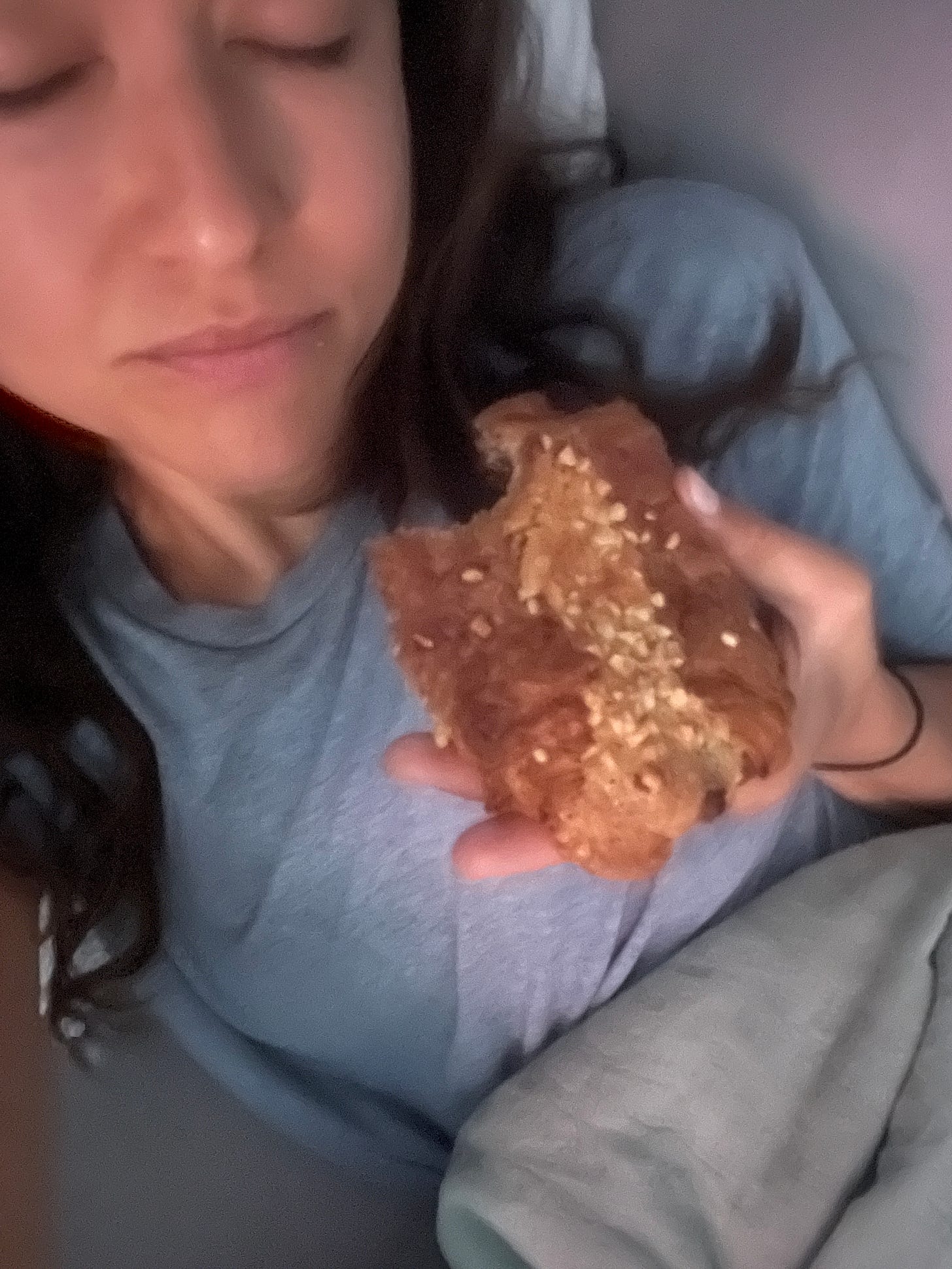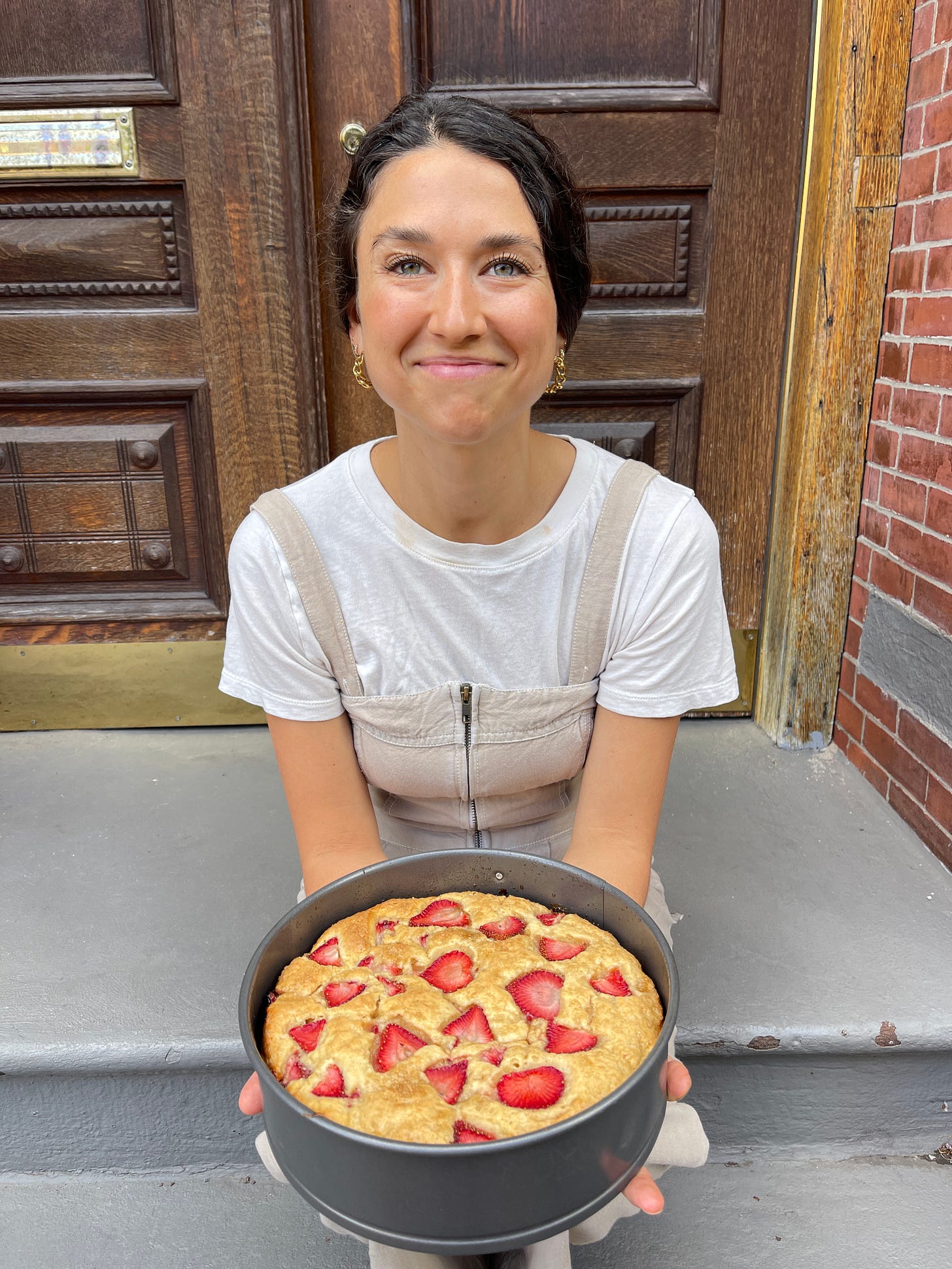I once heard on a podcast that burnout is directly related to tolerance for uncertainty.
But what if you’re constantly uncertain because you’re new and you have no idea how you even got this job in the first place and you feel like you’re not good enough to be doing what you do and you just faked it really well and that’s the reason you were hired but now you’re facing the fireworks?
(if your shoulders are up by your ears by the time you landed at the end of that sentence, then the point landed)
I feel the way about ‘imposter syndrome’ as I feel the way about the word burnout actually. It’s so broad and multi-layered. Over time the word has sort of lost its meaning because it’s used so ubiquitously. Though unfortunately, even though the word may have become somewhat diluted, the feeling of imposter syndrome has not.
The first layer was sheer panic.
While in PA school, I actually did fail a few exams and questioned if I should be there. I wasn’t the top of my class and didn’t graduate with a 4.0. Since it’s common for PA school to become your entire identity, failing those few exams did feel like a personal failure. And I was comparing myself to classmates who were consistently performing better on exams. I felt much more comfortable once in clinicals, but the constant pull of imposter was so very loud in PA school and after graduation.
(at said graduation, screaming at the thought of being a practicing PA. side note: very aggressive photo to nonchalantly toss in a Sunday night newsletter)
I remember sobbing in my kitchen on my last rotation because I just didn’t understand how you could have the same exact brain, the same amount of uncertainty, fear, imposter syndrome, but have the authority to give advice and care for patients. And I for certain didn’t understand how the evolution from new grad to competent provider happened.
The imposter syndrome is VERY real as a new grad. Cripplingly real. Could patients tell how nervous and unseasoned I was? Was I ACTUALLY giving sound advice? Or was I just projecting my own noise and energy onto patients? Was I making any sort of difference? Was I smart enough to be doing this?
In a way, I found the imposter syndrome in the beginning to be protective - it pushed me to learn more, to look up pretty much everything, to ask questions. It served as the momentum and framework to be the version of the provider I hoped to one day be.
Though when the same thought process and dialogue was present when I got home from work and in my personal life, that’s when I knew it was maladaptive and a bit manipulative.
Now that I’m three years out, imposter syndrome can feel real, yes. I’m a few more layers deep in this weird amalgam of burnout-imposter syndrome-perfectionism mayhem, and I’m wondering if I was just clinging to the idea of it being protective without it having any real benefit. By identifying so strongly with it, it kept me trapped in a self-loathing cycle, advancing the narrative that I didn’t belong or didn’t deserve my position because I didn’t remember every little thing from school, failed two exams, or wasn’t the ‘smartest’ person in my class.
When doing a bit more research on where this idea came from, I found that imposter syndrome was originally named imposter phenomenon. It was meant to describe an experience, rather than a pathology. Its founders, Clance and Imes, describe it as “a sense of impending failure that inspires frenzied hard work, and short-lived gratification when failure is staved off, quickly followed by the return of the old conviction that failure is imminent.”
Furthermore, it’s rooted in broader structures like systemic racism, classism, xenophobia, and other biases. This article sums it up nicely.
It’s also a comment on capitalism and hustle culture in general. The New Yorker article above notes, “Capitalism needs us all to feel like impostors, because feeling like an impostor ensures we’ll strive for endless progress: work harder, make more money, try to be better than our former selves and the people around us.”
I’m not at all saying that having a goal of individual self-improvement is problematic. Though the hamster wheel and compulsive motivation for more, more, more, better, better, better is not only exhausting but the absolute fastback to burnout.
(a photo of me on my recent trip eating a croissant in bed in the name of not always having to do more or better. sometimes just laying in bed and eating a croissant is enough.)
The progression from phenomenon to syndrome - just one small word - changed the meaning of the idea entirely, turning it into something pathological and identity-driven with permanence, rather than just a feeling.
If we reclaim the impostor phenomenon from the false category of “syndrome,” then we can allow it to do the work it does best, which is to depict a particular texture of interior experience: the fear of being exposed as inadequate.
Is it okay to feel new at something? Sure! And that feeling can also serve as momentum and motivation to keep going. But I realized that spending my available cognitive energy on the mask of feigned fraudulence significantly contributed to my feeling of burnout because it occupied so much space.
Leaning into imposter syndrome and identifying so heavily with it kept me stuck. Because even if I did something that directly challenged being an imposter, that nagging feeling remained. And this translated to outside of work too, and like all good self-fulfilling prophecies, I started making decisions that affirmed these self-limiting beliefs rather than challenging them.
I thought my social media content was useless because I wasn’t creating educational content that highlighted all that I do as a provider every day. Or wasn’t on par with some of the other educational content I was seeing. I put my group visits on hold because I thought someone else could be doing it better than I was and didn’t feel like I had the experience or credentials to lead them. I stopped taking students because I felt like I had nothing valuable to teach them. All of these things just further re-affirmed my own negative beliefs.
All of these had the central theme of - why would I do these things when I’m already a fraud to begin with?
Self-doubt, questioning, and uncertainty is real, but it’s not a syndrome. It’s human. There’s nothing inherently wrong, damaged, shameful or pathological about feeling this way. Growth in general is often uncomfortable and painful. But growing pains ultimately mean expansion, stretching in all directions. And then the body adjusts and there’s room to grow some more.
I think it comes back to a fixed vs growth mindset (see newsletter last week). Ie, I will always feel this way (fixed) vs I’m trying a new thing and I can’t expect to be perfect at it yet but I’m learning every day (growth).
It’s also important to zoom out when feeling really stuck in something that feels so individual or personal. Widen the lens and acknowledge how this is rooted in classism, sexism, racism, capitalism, and larger systems that play an invisible though loud hand in how we’re shaped to experience and understand things.
I am someone with a lot of privilege and I do see other people that look like me in roles that I one day hope to embody. That is, again, an absolute privilege that many do not have. And taking this broader look at imposter syndrome allowed me to connect those dots to the larger structures and systems in place for other folks who don’t have this luxury.
So I’m officially unsubscribing. Whenever the email of imposter ‘syndrome’ comes along, I’m just deleting it, making an effort to shift both my language and attachment to it.
And if you need other actions to help combat it:
When I first started working, every time I had a positive experience with a patient or co-worker I’d write it down in my note pad. That way, when I was feeling particularly vulnerable or fraudulent, I had very specific and tangible action items that negated those feelings.
Sometimes I’d also write down the negative or nervous thought I was having and then next to it I’d write down an action that I’d done in the past to negate it (this is a rendition of one of the #soft70 tenets if you’ve been participating in that). Or if that action hasn’t happened yet, I’d write down one little thing that I could do in the future to challenge the negative thought.
Patience, grace, self-compassion.
Widen the lens and read the articles below.
Doing something that gets me out of my head and into my life. Baking is a great way to do that!! I polled audiences and asked what their favorite baked good of all times was and the answers were incredible. I compiled the list in this document. Bake it til you make it, baby. I made the below Strawberry cake this weekend and it was both seasonal and sensational.
Yesterday my brother’s girlfriend told us about an Albanian phrase that roughly translates to selling farts, ie selling something pointless that smells and has the ability to occupy a lot of space. When you start going down the rabbit hole of telling yourself you’re a fraud, ask yourself if that’s a useful thought or if you’re just selling yourself farts.
Happily (with/without farts),
Katie
Mentioned in this newsletter:
Why Everyone Feels Like They’re Faking It - Leslie Jamison (The New Yorker)
Stop Telling Women They Have Imposter Syndrome - Ruchika Tulshyan and Jodi-Ann Burey (Harvard Business Review)
Google doc with baking recommendations








